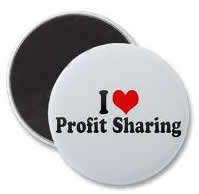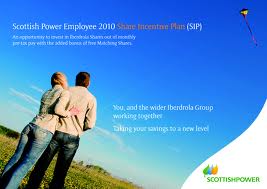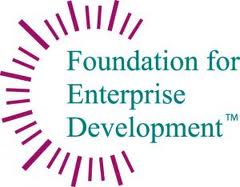The ownership of shares has long been seen to be a way to get working people to identify with the aims and interests of employers. In 1939 a number of industrial companies testified to a Senate Finance Committee hearing about the value of profit-sharing and how employee ownership of shares enabled the interests of workers and management to be reconciled and union conflict and political class struggle to be diminished.
 Various employers also attested to the value of profit sharing in the US in the 1950s. It was aimed at not only ensuring employee loyalty but also enhancing the idea that the worker and the employer were in partnership to produce profits. In this way, workers would be in favour of any measures aimed at increasing productivity and would identify more closely with employers. ‘In other words: if you feel like an owner of the company you’ll do what the boss wants without being asked/told.’
Various employers also attested to the value of profit sharing in the US in the 1950s. It was aimed at not only ensuring employee loyalty but also enhancing the idea that the worker and the employer were in partnership to produce profits. In this way, workers would be in favour of any measures aimed at increasing productivity and would identify more closely with employers. ‘In other words: if you feel like an owner of the company you’ll do what the boss wants without being asked/told.’
Profit sharing in the form of stock options is still promoted today as a way of ensuring that workers have a stake in company profitability. Between five and ten percent of US companies offer stock options to all employees, even manual workers. Many more offer stock options to executives. Stock options give the employee the right to buy shares some time in the future at a price set in the present (often at a discount to current market value). The more the share price goes up the more the options are worth because the difference between the set buying price and the sale price is more.
Stock options are used to align the interests of employees with those of shareholders and to motivate employees to work hard for company success. HR Magazine argued that stock options ‘help to create a company-wide ‘ownership culture’ by focusing employees’ attention on the employers’ financial performance’.
 It has been found that, since 1992, companies with ‘employee ownership’ plans outperformed others in terms of productivity and share value increase in the UK, the US and France and employee share ownership schemes cause workers to be more committed to their company and to be more likely to identify with it. This seems to be independent of the amount of shares owned. However, it has also been found that being able to participate in management decisions is even more important for motivation and commitment, but firms are generally unwilling to go that far.
It has been found that, since 1992, companies with ‘employee ownership’ plans outperformed others in terms of productivity and share value increase in the UK, the US and France and employee share ownership schemes cause workers to be more committed to their company and to be more likely to identify with it. This seems to be independent of the amount of shares owned. However, it has also been found that being able to participate in management decisions is even more important for motivation and commitment, but firms are generally unwilling to go that far.
If workers stand to gain from their shares then there is less need to reward them directly for productivity gains with higher wages. In fact they will better understand how such wage increases might adversely affect share prices and will make fewer demands to see the productivity gains in their wage packets. In a 1998 consultation paper the UK government argued: ‘employees who are also shareholders may better understand the risks faced by the company and its investors, which in turn can encourage recognition of the case for pay responsibility.’
‘Pay responsibility’ in this case refers to the willingness of employees to forego pay rises— not to demand pay rises—in the hope of ensuring that company profits and share value will rise. By the end of the 1990s ‘the myth of the wage/stock tradeoff was so widely accepted that its truest believers were able to present it as a historical principle.’
The UK government provides tax breaks for approved plans as an incentive to encourage them. Gordon Brown argued that employee share schemes ‘encourage the new enterprise culture of team work in which everyone contributes and everyone benefits from success… Britain can and must become a democracy of enterprise, that gives all who create wealth a greater stake in the wealth they create.’ He argued that ‘Employee share ownership is a milestone in removing once and for all the old ‘them and us’ culture in industry.’
Such views come straight from the propaganda kit of the business lobbies. George Cox, Director General of the UK Institute of Directors (IOD), has argued that employee share plans are a way ‘of engaging all employees in the commercial success of the enterprise’ and thereby for the UK to ‘create a genuine enterprise culture’. Similarly Digby Jones, the Director General of the Confederation of British Industry (CBI) has said they are ‘an invaluable tool for giving employees a direct stake in the business’.
 The British Financial Secretary, Stephen Timms, argued in 2000 that employee share ownership ‘is a cornerstone of the drive to tackle the productivity gap and promote a high investment Britain, a Britain where we reward enterprise and provide fairness for all.’ He said that it would create ‘a community of interest between workers and owners’. The government’s Share Incentive Plan (SIP) provides tax breaks for firms and employees when employees buy or receive shares in the company they work for. The aim of SIP was to ‘foster a community of interest between management and workers so as to contribute to the general well-being of the business.’ It was hoped to increase the number of shareholders in Britain by 2.5 million over 3 to 5 years at a cost to the government of about £400 million a year.
The British Financial Secretary, Stephen Timms, argued in 2000 that employee share ownership ‘is a cornerstone of the drive to tackle the productivity gap and promote a high investment Britain, a Britain where we reward enterprise and provide fairness for all.’ He said that it would create ‘a community of interest between workers and owners’. The government’s Share Incentive Plan (SIP) provides tax breaks for firms and employees when employees buy or receive shares in the company they work for. The aim of SIP was to ‘foster a community of interest between management and workers so as to contribute to the general well-being of the business.’ It was hoped to increase the number of shareholders in Britain by 2.5 million over 3 to 5 years at a cost to the government of about £400 million a year.
The number of employees exercising share options peaked in the UK in 2006/7 and have fallen since then.However the number of companies operating one or more tax-advantaged share scheme remained steady in 2010-11 at 8,900.
Company schemes that allow employees to buy shares in the company at discounted prices—or give or award them to employees as part of bonuses or salary packages—are also aimed at aligning employee interests with those of shareholders. In the UK over 500 companies ran Approved Employee Share Plans for some 3.5 million employees in 2002.
 The UK group Proshare promotes employee share ownership to "policymakers, the media, the European Union and other regulatory and statutory bodies." It evolved out of the Wider Share Ownership Council, and was founded by the UK Treasury, the London Stock Exchange (LSE) and a consortium of major companies, with the aim of encouraging share ownership. It is now independent of government and funded by donations from over 180 companies and grants from LSE and various charities and foundations. It has initiated some 10,000 investment clubs, carries out research and lobbies government to ensure government policies are in the interests of investors.
The UK group Proshare promotes employee share ownership to "policymakers, the media, the European Union and other regulatory and statutory bodies." It evolved out of the Wider Share Ownership Council, and was founded by the UK Treasury, the London Stock Exchange (LSE) and a consortium of major companies, with the aim of encouraging share ownership. It is now independent of government and funded by donations from over 180 companies and grants from LSE and various charities and foundations. It has initiated some 10,000 investment clubs, carries out research and lobbies government to ensure government policies are in the interests of investors.
Proshare argues that there is plenty of research to show ‘a clear link between employee ownership and improved corporate performance’ when employees are encouraged to feel like part owners of the corporation. It also runs some 12 different training courses for industry on employee share plans and hopes to develop an externally accredited qualification in the area. In addition, Proshare organised 14 road shows in conjunction with the Inland Revenue department, to promote Share Incentive Plans (SIP) in 2002.
The Employee Share Ownership Center (ESOP) is a non-profit group that lobbies for employee share ownership in the UK and Europe. Its members include companies, law and accountancy professionals, banks, consultants and trustees.
 Another UK group promoting wider share ownership is the Employee Ownership Association (EOA) claims that it is supported by the three main political parties.
Another UK group promoting wider share ownership is the Employee Ownership Association (EOA) claims that it is supported by the three main political parties.
EOA began life as the Job Ownership Ltd (JOL), which was funded by a group of UK companies that called themselves ‘leading employee-owned companies’, suggesting that employee stock holders were the company owners. According to JOL, employee share ownership schemes are for conservatives a ‘way to spread property ownership to a wider constituency, turning them into capitalists’ whilst for the Labour Party they are a form of social ownership.
EOA 'instigated the Employee Share Alliance in 2001, with the objective of supporting Government legislation introducing the Share Incentive Plan [SIP].'The Employee Share Alliance (ESA) was a British alliance of business and union groups, including the Trades Union Congress (TUC), the CBI, and the IOD.
In the US there were between 17 and 20 million workers in large share ownership plans and other schemes that hold employer stock including pension schemes in 2002. One in five employees had stock in the company they worked for, outside of stock option plans. However in most cases employees owned a small minority of their company’s stock.
In 2010, "36% of employees working for companies with stock (this excludes government employers, nonprofits, partnerships, etc.) own stock or options in their companies. This mean that approximately 28 million Americans own employer stock through ESOPs [employee stock ownership plans], options, stock purchase plans, 401(k) plans". The number of companies offereing ESOPs or their equivalent has been fairly steady since the late 1990s.
The National Center for Employee Ownership (NCEO), based in California, encourages companies to create an ‘ownership culture’ amongst their em ployees. It claims to be the ‘main publisher and research source in the field’ of employee ownership.
ployees. It claims to be the ‘main publisher and research source in the field’ of employee ownership.
Ownership Associates of Cambridge Massachusetts published The Ownership Culture Report. It defined ownership culture: ‘An ownership culture exists in a company where employees think and act like owners’. It argued that employee share ownership schemes encourage workers to act in the company’s interest by creating an ownership culture. However since workers might perceive ownership differently from managers, ‘company leaders must work with and, where necessary, challenge employee interpretations of ownership’.
David Wray, from the Profit Sharing/401(k) Council of America, says ‘Stock ownership by employees aligns the interests of employees and employers. It reduces the ‘we versus they’ perspective’.
 Another US based organisation that seeks to create an ownership culture is the Foundation for Enterprise Development (FED) which is ‘dedicated to advancing the use of enterprise employee ownership nationally and internationally, in both the public and private sectors.’ It argues that share ownership gives employees ‘a financial and psychological stake’ in the company they work for, ‘and therefore a personal stake’ which will ‘align the interests of employees with the strategic goals of the company.’
Another US based organisation that seeks to create an ownership culture is the Foundation for Enterprise Development (FED) which is ‘dedicated to advancing the use of enterprise employee ownership nationally and internationally, in both the public and private sectors.’ It argues that share ownership gives employees ‘a financial and psychological stake’ in the company they work for, ‘and therefore a personal stake’ which will ‘align the interests of employees with the strategic goals of the company.’
However corporate executives are loath to share any power with the new 'owners'. In the US in the mid 1990s when employees owned an average of 13 percent of 562 publicly-listed companies, employees had a seat on the board of less than 12 of them (see the reality of shareholding). Although employee share owners expected a say in corporate decisions, in many cases employees did not even have normal shareholder rights. This was especially the case when shares were held in a mutual fund, or a trust held on behalf of employees, because in such cases fund managers exercised share voting rights. The same was true of share ownership via pension and 401(k) funds.
In Australia an inquiry was held into share ownership in Australian enterprises in 1999. It was chaired by Liberal MP Brendan Nelson. Witnesses to the hearings told the parliamentary committee that share plans were ‘a means of aligning the interests of business and employees so as to achieve better business results’; a way of rewarding employees for their efforts in a ‘tax-effective’ manner; a method of encouraging savings and ‘a means of ‘democratising’ capital: that is, spreading capital ownership and access to capital more widely within the community.’
Nelson argued that ‘employee share plans bind people more closely to the activities of their fellow citizens who work within a particular organisation’ and ‘create a more inclusive workplace’.
Shann Turbull, a founding member of the Australian Employee Ownership Association, and author of Democratising the Wealth of Nations argued that corporations misused employee share ownership schemes as a way of legitimising excessive payments to top executives by offering shares to all employees: ‘I am suggesting that we want to see beyond that to get not just a mandate within a corporation, but a mandate within the whole voting constituency of Australia, so that all people have an inclusive vested interest in property ownership’.
The Business Council of Australia (BCA) also supported employee Share Ownership plans because they give large numbers of people a financial stake in the company they work for and therefore an incentive to contribute to its success: ‘Shared ownership can create an environment of common goals and shared interest between employees and management’. Eighty percent of its members listed on the stock exchange had such plans. It cited the Australian Gas Light Company which stated ‘we believe it is important for our employees not only to think like Proprietors, but also to participate in the benefits of improvements in the Company … linking the employees with the Company as Proprietors has indeed helped focus priorities.’ It also cited Woodside Petroleum which said its plan ‘has been shown to contribute to employee alignment with Company goals’.
Similarly Workplace Relations Minister, Peter Reith, was encouraging employee share ownership because, according to The Bulletin:
By becoming part-owners, staff would hopefully come to better appreciate matters such as costs, profits and the impact of wage rates. They would be less bolshie and more understanding of what management and owners are trying to achieve, as they would all be rewarded along similar lines.
In its submission, BHP told the same inquiry that employees owned shares or options worth 7.6% of the company’s capital and that its motivation in providing this opportunity was to help wage earners to understand and experience private enterprise; to justify ‘the profit motive in terms of risk return for investors’; and to encourage ‘employees to take a more active interest as co-owners of the company and for them to look beyond their local domain’.
Rob Donkersley, Employee Relations Director for Coca-Cola Amatil, told the inquiry about his company’s employee share ownership plan:
We feel we have captured the minds of our employees through this plan. We have provided a good vehicle for them to link themselves with the fortunes of the company and take a wider perspective than their individual role in their individual operation could allow… We believe, although we cannot prove it, there is this beneficial effect in terms of getting the productivity levels that we want and the commitment that we want from employees throughout the enterprise... Our objective is to have it available in all countries over time.